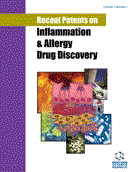Abstract
Sepsis is currently the 10th leading cause of death overall and accounts for significant healthcare expenditures in the developed world. There are now more deaths attributable to sepsis than coronary artery disease, stroke, or cancer, and it is widely believed that the incidence of sepsis and sepsis-related mortality will continue to rise. Based on these sobering statistics, there is great interest in identifying novel treatments for managing critically ill children and adults with sepsis. Unfortunately, to date, there have been very few successful therapeutic agents employed in the clinical setting. Despite these disappointing results, new therapeutic agents continue to be identified, and there is reason for optimism and hope for the future. Herein, we will briefly review several novel therapeutic adjuncts for the management of critically ill patients with sepsis. We will largely focus on those therapies that directly target the host inflammatory response, specifically those that result in activation of the transcription factor, nuclear factor (NF)-κB. We will also reference some of the patents recently filed that pertain to the host innate immune response and sepsis.
Keywords: Sepsis, critical illness, septic shock, genomics, gene polymorphisms, LPS, NF-κB, toll-like receptors, danger signals, heat shock proteins
Recent Patents on Inflammation & Allergy Drug Discovery
Title: Novel Pharmacologic Approaches to the Management of Sepsis: Targeting the Host Inflammatory Response
Volume: 3 Issue: 2
Author(s): Derek S. Wheeler, Basilia Zingarelli, William J. Wheeler and Hector R. Wong
Affiliation:
Keywords: Sepsis, critical illness, septic shock, genomics, gene polymorphisms, LPS, NF-κB, toll-like receptors, danger signals, heat shock proteins
Abstract: Sepsis is currently the 10th leading cause of death overall and accounts for significant healthcare expenditures in the developed world. There are now more deaths attributable to sepsis than coronary artery disease, stroke, or cancer, and it is widely believed that the incidence of sepsis and sepsis-related mortality will continue to rise. Based on these sobering statistics, there is great interest in identifying novel treatments for managing critically ill children and adults with sepsis. Unfortunately, to date, there have been very few successful therapeutic agents employed in the clinical setting. Despite these disappointing results, new therapeutic agents continue to be identified, and there is reason for optimism and hope for the future. Herein, we will briefly review several novel therapeutic adjuncts for the management of critically ill patients with sepsis. We will largely focus on those therapies that directly target the host inflammatory response, specifically those that result in activation of the transcription factor, nuclear factor (NF)-κB. We will also reference some of the patents recently filed that pertain to the host innate immune response and sepsis.
Export Options
About this article
Cite this article as:
Wheeler S. Derek, Zingarelli Basilia, Wheeler J. William and Wong R. Hector, Novel Pharmacologic Approaches to the Management of Sepsis: Targeting the Host Inflammatory Response, Recent Patents on Inflammation & Allergy Drug Discovery 2009; 3 (2) . https://dx.doi.org/10.2174/187221309788489779
| DOI https://dx.doi.org/10.2174/187221309788489779 |
Print ISSN 1872-213X |
| Publisher Name Bentham Science Publisher |
Online ISSN 2212-2710 |
 14
14Related Articles
-
Aldosterone and the Pathogenesis of Hypertension
Current Hypertension Reviews Mesenchymal Stem Cells: New Approaches for the Treatment of Neurological Diseases
Current Stem Cell Research & Therapy Are Cerebrovascular White Matter Lesions an Early Sign of Vascular Cognitive Impairment and Vascular Dementia?
Vascular Disease Prevention (Discontinued) LINE-1 Methylation is Associated with an Increased Risk of Ischemic Stroke in Men
Current Neurovascular Research Discharge Interventions and Modifiable Risk Factors for Preventing Hospital Readmissions in Children with Medical Complexity
Reviews on Recent Clinical Trials Preface
Current Cardiology Reviews Intra-Renal Hemodynamic Changes After Habitual Physical Activity in Patients with Chronic Kidney Disease
Current Pharmaceutical Design Implantable Medical Devices and Tissue Engineering: An Overview of Manufacturing Processes and the Use of Polymeric Matrices for Manufacturing and Coating their Surfaces
Current Medicinal Chemistry Assessment and Relevance of Carotid Intima-Media Thickness (C-IMT) in Primary and Secondary Cardiovascular Prevention
Current Pharmaceutical Design Biologic Therapy in Immune Mediated Inflammatory Disease: Basic Science and Clinical Concepts
Current Drug Safety Screening and Analysis of Hypolipidemic Components from Shuangdan Capsule Based on Pancreatic Lipase
Current Bioinformatics Use of Chou’s 5-steps Rule to Study the Effect of Cereal Dietary Protein on Liver and Coronary Heart Disease Prevention
Current Nutrition & Food Science New Strategies and Drugs in the Treatment of Hypertension: Monotherapy or Combination?
Recent Patents on Cardiovascular Drug Discovery Why Multiples of 21? Why does Selenoprotein P Contain Multiple Selenocysteine Residues?
Current Nutraceuticals The Crosstalk Between miRNA and Mammalian Circadian Clock
Current Medicinal Chemistry Prevention of Bacterial Endocarditis
Cardiovascular & Hematological Disorders-Drug Targets Review of Rational Approaches to the Treatment of Pain Management-Role forOpioids Therapies
Current Drug Therapy The Killing of Human Neuroblastoma Cells by the Small Molecule JQ1 Occurs in a p53-Dependent Manner
Anti-Cancer Agents in Medicinal Chemistry Apolipoprotein E Knockout Models
Current Pharmaceutical Design Pharmacological Targeting in Inherited Arrhythmia Syndromes
Current Medicinal Chemistry



















